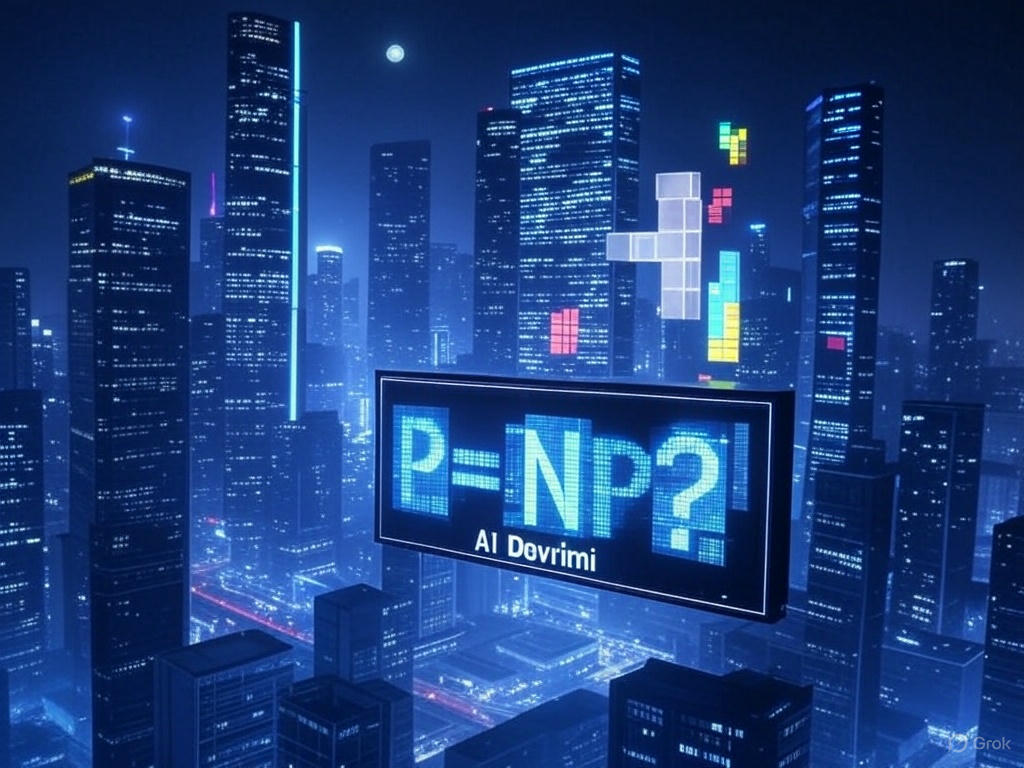Pedro Domingos' book "The Master Algorithm" is filled with problematic claims and logical fallacies. I'm astonished by the number of errors that made it into publication. The concept of fuzzy logic seems to have confused many people, including the author.
Flawed Arguments for the Master Algorithm
In "The Master Algorithm," Domingos attempts to justify the possibility of a master algorithm through various arguments:
- Neuroscience-based argument
- Evolution-based argument
- Physics-based argument
- Statistics-based argument
- Computer science-based argument
Let's focus solely on the "Computer science-based argument" to examine the flaws in his reasoning.
The Tetris Fallacy
Domingos makes the following claim:
"I love the game Tetris. The Tetris game is the solution to the P=NP problem. If you understand and solve this problem, you can solve everything from politics to physics, chemistry, DNA, etc."
This statement is a fabrication that expects us to accept his reality as a given. While a problem being NP-complete shows that it's in NP and that any NP problem can be reduced to it, this does not prove that P=NP. This is a fundamental misunderstanding of computational complexity theory.
The Computer Existence Argument
Domingos also claims:
"The very existence of computers is a strong indication that a master algorithm exists. If you traveled back in time 100 years and said that soon a machine would emerge that could solve every problem of human endeavor, and instead of separate machines for each problem, there would be just one machine, people would laugh at you and say a sewing machine can't write, and a typewriter can't sew."
The major mistake here is using analogy to form an argument. General-purpose computers can indeed run different software to perform various tasks, but this doesn't mean a single algorithm can solve every problem. The Von Neumann architecture allows us to load different software to do different jobs, but this doesn't imply the existence of a "master algorithm" that can solve everything.
Computers don't actually sew or write—they assist with these tasks. Claiming that a single machine doing every job means there must be a master algorithm is an unfair simplification that would have confused people 100 years ago.
Additionally, the thinking of people 100 years ago that "a sewing machine can't write" was completely justified because the concept of programmable machines wasn't known then. Today's computers appear to do everything because they can run general-purpose programs, not because there's "one solution for every problem." Trying to solve all different problems in nature with a single algorithm would be forcing diverse issues into a one-size-fits-all framework.
The False Dichotomy Against Critics
Domingos continues:
"Critics of the master algorithm exist; those who think it's a magic wand are knowledge engineers, one of artificial intelligence's biggest enemies. They say neural networks can certainly learn something, but they must be compared with real knowledge. Also, big data is not new; it's a kind of deception."
Here, Domingos positions "knowledge engineers" as opponents of AI, but this claim is both false and manipulative rhetoric.
The claim that "Knowledge Engineers Are AI's Biggest Enemies" is misleading because knowledge engineering is actually a subfield of artificial intelligence, especially focused on expert systems and ontologies. Claiming this field is AI's "biggest enemy" is subjective and an attempt to make an artificial opposition.
This is a logical fallacy known as a false dilemma:
- False Dichotomy: It suggests you must either accept the Master Algorithm idea or be a knowledge engineer who's an enemy of AI. These aren't mutually exclusive concepts.
- Distortion: Knowledge engineering is a different approach to AI, not opposed to it.
Another problem emerges:
- Are knowledge engineers truly AI's biggest enemies?
- Where's the data supporting this claim?
- A scholarly source or citation should be provided for such a statement.
But Domingos offers none, presenting his bias as absolute truth. This is called rhetorical manipulation—"Making Arguments Based on Words Not Said." It's commonly used in political disputes.
Domingos attributes a position to knowledge engineers and then criticizes them for something they don't advocate. This is known as a straw man fallacy.
What evidence is there that knowledge engineers claim AI is deceptive? How was this conclusion reached? If Pedro Domingos' word is the only evidence, this isn't a scientific book but rather a collection of emotional thoughts.
The Intimidation Tactic
At the beginning of the book, Domingos starts with a harsh introduction:
"If you're a programmer, this will irritate you, but every revolution is like this; don't resist it, find new job areas for yourself."
This is a form of presumption technique. If you disagree with the book's claims, you're "resisting change" or "old-fashioned." However, the nature of scientific criticism involves questioning new ideas. Revolutions happen in a healthy way by questioning and correcting mistakes.
The message "Either accept this or remain blindly attached to old systems" is presented to the reader. In science, there's always a third option: critical examination and improvement. The book seems to start with a provocative introduction to generate discussion.
Saying "Programmers will disappear" increases emotional response and promotes more discussion about the book, but this approach feels more emotional than substantive.
Conclusion
Pedro Domingos' "The Master Algorithm" presents numerous problematic arguments that don't stand up to logical scrutiny. By misrepresenting fundamental concepts in computer science and making false oppositions, the book undermines its own thesis.
The concept of a single algorithm that can solve all problems contradicts our understanding of computational complexity and the diverse nature of problems we face. While general-purpose computing has revolutionized our capabilities, this doesn't support the existence of a universal algorithm.
Critical thinking and rigorous analysis remain essential when evaluating bold claims about artificial intelligence and its future. Rather than seeking a mythical master algorithm, we should appreciate the diversity of approaches needed to address different types of problems in computing and beyond.
